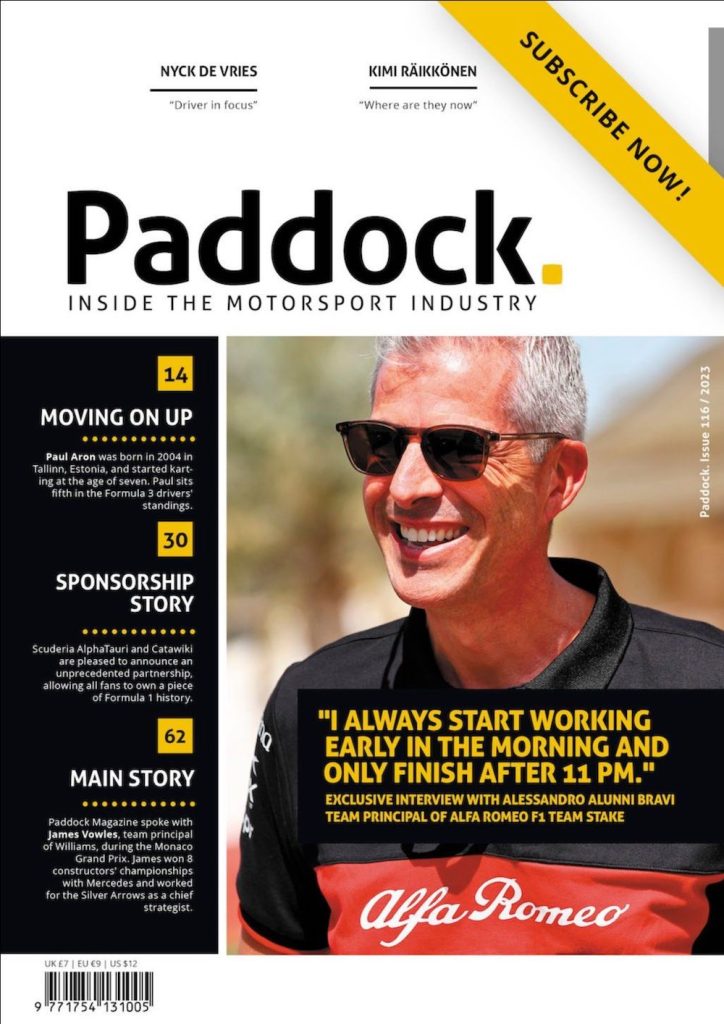By Claire Jane Earley
Formula 1 is a notoriously prickly sport. Fans and followers alike will know that whilst teams, drivers, truckies and anybody who is anybody in F1 engage regularly with fans on social media (sometimes too regularly, as David Granger pointed out in the last issue), the sport itself does not engage at all. But does it need to?
Click here to subscribe to our print edition!
Many a fan has bemoaned the lack of interaction from the sport – videos and footage from races are removed almost immediately from the internet by the FOM, F1 as a series does not tweet often (and when it does, the information is very generic) or use Facebook as a platform for engagement and it’s website is only in English, something which isolates a lot of fans and potential fans. It has been suggested that if the FOM spent as much time on actually trying to reach it’s fans as it does on removing footage, then perhaps the sport would be in a better place. Perhaps F1’s unwillingness to engage these platforms is that Bernie Ecclestone sees no way in which to monetize them?
Recognizing the dilemma, Nikki Lauda, known for his outspokenness, has opened up in an interview with the Die Welt on the subject, suggesting that F1 runs the risk of self-destructing:
“Formula 1 is seeing a serious cultural change. The audience wants to watch sport in a different way than before, due to the rapid growth of the new means of communication.
If we continue like this, no one will be bothered about Formula 1 anymore. It’s five minutes to 12.
It is logical that the young people of today have other priorities. Everything in the world is changing, but only Formula 1 is staying where it was.
Young people do not want to stay at home on Sunday when the sun is shining to sit in the lounge with their father for two hours. The problem is that today, there is no alternative. You can’t just sit on the beach and watch the race highlights on your smartphone.
We have a generation of drivers that, if they were not wearing their racing overalls, you would simply walk past some of them and not notice. The ‘Formula 1 system’ is to supervise, monitor, regulate. But we must again have the drivers, not the bureaucrats, in the foreground.
Recent introductions that FOM has made to the sport include the universally unpopular ‘double points’ fiasco, gimmicks such as spark plates, and currently, the re-involvement of Flavio Briatore as the head of an engagement committee to try and reengage the fans it is losing. However, despite these measures garnered towards attracting the younger generation to the sport, it has succeeded in alienating some of its lifelong fans and caused even greater rifts amongst those who still watch. Journalists and fans alike have questioned the wisdom of these developments, and most agree that if the sport was more in touch with it’s fans, and more in tune with what it’s fans want, then most of these gimmicks would be way-laid.
Another problem picked up on by Lauda is the seemingly huge gap between the star drivers and bureaucrats within the sport, and those down near the back of the grid. Drivers such as Lewis Hamilton and Fernando Alonso reach over two million people each time they take to Twitter/Facebook/Instagram whereas Marcus Ericsson effectively “talks to himself” as the bleacher report puts it, reaching just over 27 000 people each time he takes to social media. The same holds true for the bureaucrats of the sport, with Eric Boullier reaching 33 000 people versus Paddy Lowe who reaches around 25 000 people. This seeming anonymity for some of the drivers highlights just how much F1 relies on its stars to attract fans to the sport, and how much of the grid remains a backwater for fans new to the sport, which is a shame because how is the sport to grow and reinvigorate without support for those at the back?
Formula 1 prides itself on being at the forefront of technology and advancement, and indeed what is seen on the cars now will no doubt be incorporated into your car fairly soon, and yet the world of social engagement seems to be a foreign concept, and something that it is afraid of becoming involved with. Sports such as football, rugby and tennis have made it a priority to involve their fans, with football leading the pack by quite some margin – the recent FIFA World Cup generated over 1 billion Facebook interactions in 18 days, and over 3 billion twitter interactions over the same period. In turn, F1 produces just over 1 billion interactions over a season, a far cry from where it could be. F1 has 20 races a season, each of which has the potential to bring in over 5 million viewers both live and at home, and yet it is stagnating behind sports which offer less. Perhaps it’s time to look for something other than money in the sport?
It does not make any sense that a sport that heads up the development of motorsport and advancements in technology cannot work with Facebook, Twitter or YouTube as well. If Formula 1 wants to remain relevant, and not just with new fans but old ones as well, it needs to do something about this lack of engagement. The future of the sport depends on it.






Related Articles